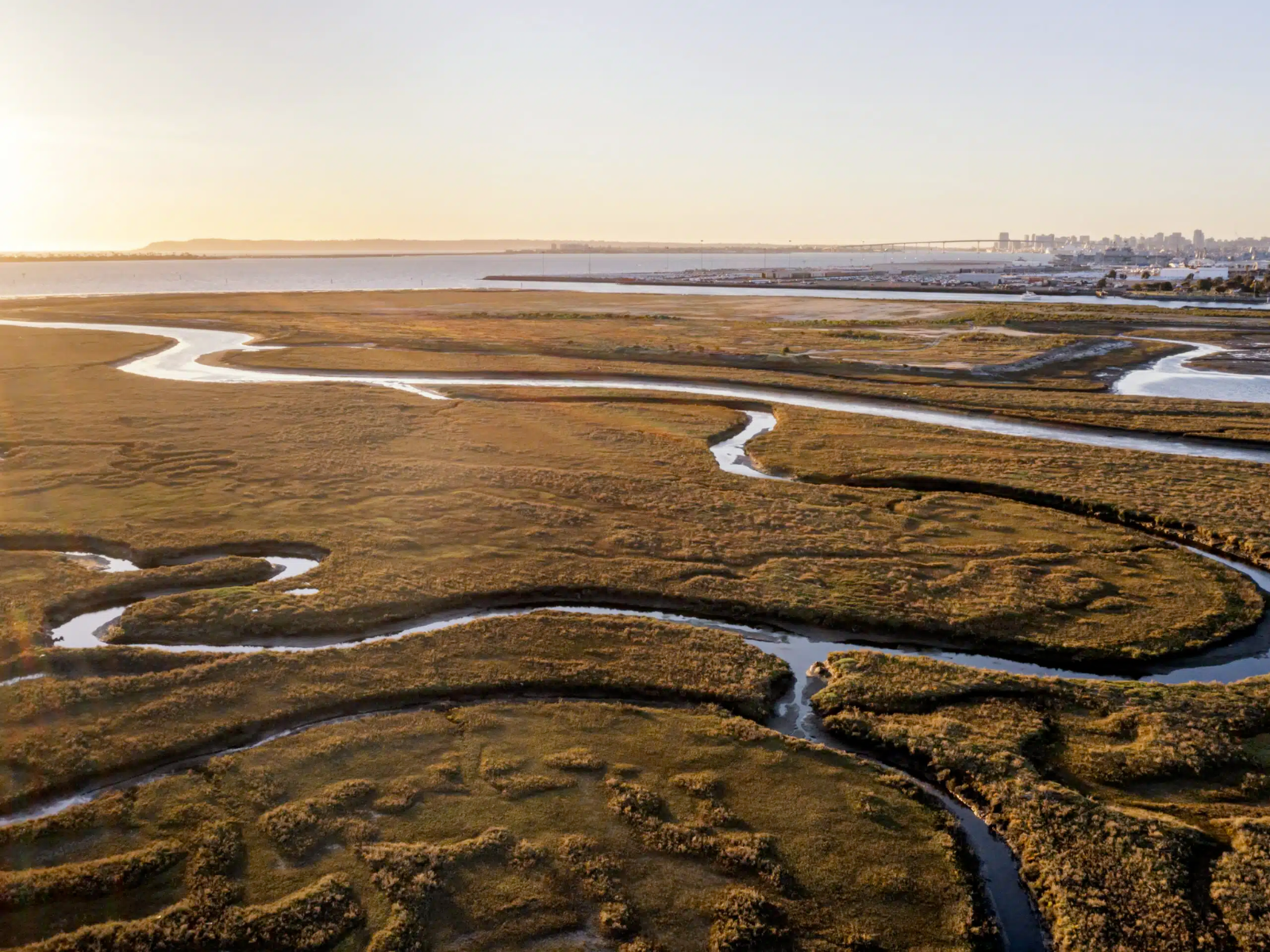This post originally appeared on Woodall’s Campgound Magazine
When the National Association of RV Parks and Campgrounds (Nat. ARVC) launched its Plan-it-Green Friendly awards competition in 2007, relatively few private parks were promoting their efforts to use recycled materials or conserve water and energy.
But as the nation celebrated Earth Day in April, the number of campgrounds, RV parks and resorts that are embracing at least nine of Nat. ARVC’s 16 eco-friendly criteria for conservation and recycling have skyrocketed.
All of the major owners and operators of private parks have launched green initiatives, including Sun Outdoors and the Yogi Bear’s Jellystone Park Camp-Resort franchise network, which Sun acquired in late 2021; Equity LifeStyle Properties (ELS), which owns the Encore, Thousand Trails and Petite Retreats networks; Kampgrounds of America Inc. (KOA); and Roberts Resorts.
Every campground, RV park and resort in the Sun Outdoors network is going green, Melissa Smith, Sun’s director of sustainability, told WOODALLSCM.com (WCM). “As of Dec. 31, we had 182 RV communities and all of them have green initiatives of some kind,” she said, adding that all of Sun’s parks are using ARVC’s Plan-it-Green criteria to guide their green initiatives, including parks that are not members of ARVC.
“Our properties found (nat. ARVC’s 16 eco-friendly criteria for conservation and recycling) very easy to follow,” Smith added, noting that Sun expects all of its RV resorts to meet at least nine of ARVC’s Plan-it-Green requirements within a year of opening or acquisition by the Southfield, Mich.-based company. Sun has announced plans in January to achieve carbon neutrality by 2035 and net zero emissions by 2045.
Sun plans to achieve these goals by increasing its parks’ use of renewable energy, green building, waste reduction and materials procurement, which means that Sun will increasingly purchase products and services based on their respective emissions data, Smith said, citing Sun’s 2021 Environmental, Social and Governance Report. Sun’s green-friendly parks include Sun Outdoors Paso Robles in California, whose water-saving initiatives include irrigating its landscaping with recycled wastewater. Other noteworthy green parks in Sun’s portfolio include Sun Outdoors San Diego Bay in Chula Vista, Calif., which features:
- 100% utilization of LED fixtures throughout the resort; reducing lighting energy consumption by 40% from non-LED fixtures.
- Installation of high-efficiency tankless water heaters, which is estimated to reduce energy needs by 22% when heating water.
- Widespread use of water-efficient landscaping irrigated with water-saving drip irrigation systems.
- Installation of bird spikes on all light poles and bird wire on the edge of all buildings for raptor management. These systems deter raptors from sitting in perches where they can easily attack native waterfowl.
Franchisees in the Jellystone Park franchise network, which Sun acquired in late 2021, are also stepping up their efforts to be green. Noteworthy examples include the Jellystone Park in Harrisville, Pa., an ARVC Plan-it-Green award winner that has invested in motion-activated faucets and lights, a solar-heated swimming pool, high-efficiency toilets, tankless water heaters and a paperless reservation system. The park’s walkways are made of all-natural materials. Even its laser tag battlefield is made entirely of recycled or repurposed materials, including recycled tires, recycled building materials and recycled playground equipment.
The Jellystone Park in Wisconsin Dells, Wis., a Nat. ARVC Plan-it-Green finalist, uses Yogi Bear, Boo Boo, Cindy Bear and Ranger Smith to make its recycling program kid-friendly and family-friendly. Guests are given a blue bag for recyclables and a green bag for composting upon arrival at the park and are directed to the many recycling stations throughout the campground. Pictures are also included with the bags to indicate what items can be disposed of in them. The use of this program enabled the location to reduce its landfill waste by 25% when the program was launched in 2018.
At Chicago-based ELS, “sustainability is embedded in all aspects of the Company,” according to its 2021 Sustainability Report, which provides statistics along with descriptions of the company’s efforts to incorporate environmental, social and governance (ESG) principles into private park operations.
Of course, to be effective with green initiatives, ELS is encouraging its guests to do their part, too. Four years ago, ELS’s Encore network of RV resorts launched a WaterWise campaign to encourage its guests to use water more efficiently. As of last year, guests at nearly 90 Encore RV Resorts across Florida, Texas, Arizona, Nevada and California had pledged to use less water in their daily lives.
“Encore RV Resorts is dedicated to improving the environment and promoting sustainability, and our annual WaterWise campaign plays an important role in those efforts,” said Pat Zamora, vice president of marketing for Encore RV Resorts.

Thousand Trails Wilderness Lakes is one of many parks that are installing solar panels to reduce costs and help the environment.
The latest green investments in ELS’s Thousand Trails network include the installation of a new premium RV storage section topped with nearly 3,500 solar panels at the Wilderness Lakes Campground in Menifee, Calif. The new RV storage facility is topped with roughly 82,000 square feet of solar panels that produce approximately 2.4 million kilowatt hours of renewable energy per year. The new facility will generate about 50% of the total energy used across the campground, which has more than 500 sites and features common area amenities, including a swimming pool, hot tubs, a clubhouse, a fitness center and a game room.
Green initiatives ELS’s Petite Retreats include the installation of eco-friendly tiny homes at the Natchez Trace Tiny House Village in Hohenwald, Tenn., about an hour southwest of Nashville. All six tiny homes at the park were built by the Tumbleweed Tiny House Company, are certified green and feature low-VOC products, mineral wool insulation, low-flow plumbing fixtures and air exchangers.
Billings, Mont.-based KOA, for its part, has created its own sustainability program called Kamp Green, which encourages its 500-plus franchisees to create more sustainable campgrounds with the goal of saving energy, conserving water and diverting waste, according to Xenique McLeod, KOA’s director of public relations.
“KOA has outlined several steps to these ends including energy efficient lighting alternatives, green energy conversions, low flow appliances, and reducing the use of single-use plastics,” she said. “Our Campground of the Future grant provides seed money to assist campground owners and managers in implementing sustainability projects.”
McLeod cited several examples of KOA campgrounds across the country that are making exemplary investments in green initiatives. These include the KOA’s 2023 Campground of the Year and the Bellefonte/State College KOA Holiday in Bellefonte, Pa., which installed 569 solar panels in 2019 — enough to generate 100% of the campground’s electricity year-round.
Last year, McLeod said the Seligaman/Route 66 KOA Journey in Seligman installed a prefabricated wastewater treatment system, made from recycled materials, that simplifies the treatment process, eliminates smells, helps with water conservation, and increases treatment capacity. Goodland KOA Journey in Goodland, Kan., used a Campground of the Future grant to help pay for the installation of 12 solar water heating tanks.
Across the Sunbelt, Scottsdale, Ariz.-based Roberts Resorts is stepping up its efforts to conserve water. “We are putting in water meters at all our long-term RV sites so that people conserve water. We also are choosing more drought tolerant plants in newly landscaped areas and adding artificial grass in public park areas rather than grass,” said company CEO Scott Roberts.
Roberts Resorts’ green initiatives are also being implemented at Village Camp, the company’s network of resorts that combine upscale RV sites with luxurious tiny homes.
“At Village Camp Flagstaff and our future Village Camp Durango we are designing all the RV lots to have 200-amp service with that mindset that we will have a dedicated 50-amp service for EVs,” Roberts said.
While the campground industry is still in the earliest stages of developing the infrastructure needed to support electric vehicles, some independently owned and operated parks have already installed EV charging stations, including Casa de Fruta in Hollister, California and Rip Van Winkle Campgrounds in Saugerties, N.Y.
Last year, Torrey Trails RV & Golf Resort expanded by adding 210 new campsites, each with a second pedestal for EV charging purposes.
“Every single lot in this phase is EV ready – meaning, you can have your RV plugged in and your EV being charged at the same time, right on your lot,” said Amir Harpaz, who co-developed the park. “Our setup is 50-30-20 in the back and another 50 at the front of the lot for EV. Mike Sorensen, of Wild Energy, Inc., and the team at NewBook worked hard to integrate the wireless metering into our (power management system) so it works flawlessly, allowing us not only to meter RV electric usage but also letting us know when an EV is plugged in so we can meter usage when that happens.”
When it comes to multi-park development of EV infrastructure, KOA is further along than most, having developed a web page that lists 13 KOAs across the country that have EV charging stations on site. KOA plans to continue adding EV charging stations at its campgrounds, according to McLeod.
While going green can help protect the Earth and lower water and energy costs, park operators tell WCM it’s hard to quantify how many additional guests they gain by going green.
Nat. ARVC, however, believes that parks can grow their customer base by embracing green initiatives. The Denver-based association cites a 2021 Sustainable Travel Report sponsored by Booking.com, which found that 53% of U.S. travelers believe that people have to act now to save the planet for future generations. Forty-three percent of those surveyed also believe that there aren’t enough sustainable travel options available and nearly half of them admit they get annoyed if the travel destination they select does not provide recycling facilities or otherwise prevents them from doing their part to protect the environment.
Even government-run campgrounds are embracing green-friendly initiatives, particularly Santee Lakes Recreation Preserve in Santee, Calif., a five-time winner of Nat. ARVC’s Plan-it-Green Award since 2013. This 312-site campground has seven recreational lakes, which have been created using recycled water produced by Padre Dan Municipal Water District. The park makes extensive use of solar power, tankless water heaters, water-efficient landscaping and hosts annual tree-planting events. The park’s recently remodeled general store has a 4,000 square deck made from recycled wood and steel. The park also provides green education and hosts annual tree-planting events.


